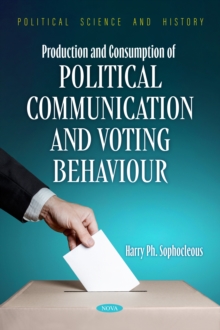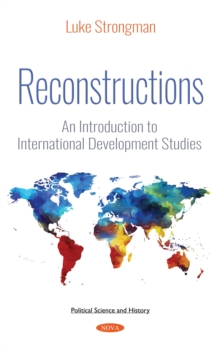
Disciplines of the City: New Forms of Governance in Today's Postmetropolises PDF
Edited by Julia Urabayen
Part of the Political Science and History series
Description
During the past two decades, cities have become nerve centers for the production of value.
Connected in real time by means of a vast infrastructure network, their productive dynamic has surpassed the organizational and management capabilities of territorially limited States, which are dependent on the international financial flow of capital moving across them.
Given that cities are truly the biopolitical factories of the 21st century, the job functions of an urban planner are now identified with those of a highly placed manager in charge of a company's R+D+i, and the mode of governance applied to these is different from that used during previous, historic stages.
From different viewpoints (Philosophy, Law, Architecture, and Engineering), this book offers an analysis of the main changes which have taken place in the way cities function.
Among other issues, it looks at the management styles applied by public administrations to public spaces (David Thunder; Jorge Leon, Enrique Cano, and Jose Maria Castejon), and the new manner in which social (Julia Urabayen) and legal - public (Adriana Ruiz and Alejandro Gomez) and private (Felipe Schwember) - segregation is generated.
It also looks at the new sociopolitical uses that city inhabitants have given to common spaces beyond the dichotomy of private and public space (Jonas Holst; Carlos Camara).
In other words, the chapters included in this book are not an historical approach to the city, but a theoretical reflection on the disciplines that define our post-metropolitan cities.
The aim of the book is to understand how cities and the disciplines that are used to make them work function nowadays: governance, politics, and technology.
The cities of the 21st century are no longer places where people can live freely (as Weber stated in The City), but spaces divided in at least two different areas: those who have access to ICT and those who do not have that technology, those who live in healthy and safe boroughs, and those who live in poor and unhealthy areas.
This book ponders those problems and tries to show how the disciplinarians of the city deal with them.
Information
-
Download - Immediately Available
- Format:PDF
- Pages:216 pages
- Publisher:Nova Science Publishers, Inc.
- Publication Date:20/03/2019
- Category:
- ISBN:9781536152579
Information
-
Download - Immediately Available
- Format:PDF
- Pages:216 pages
- Publisher:Nova Science Publishers, Inc.
- Publication Date:20/03/2019
- Category:
- ISBN:9781536152579










